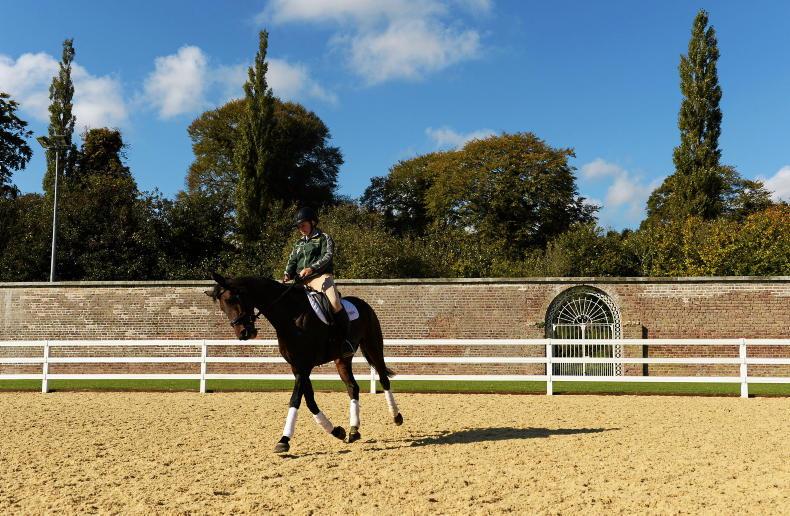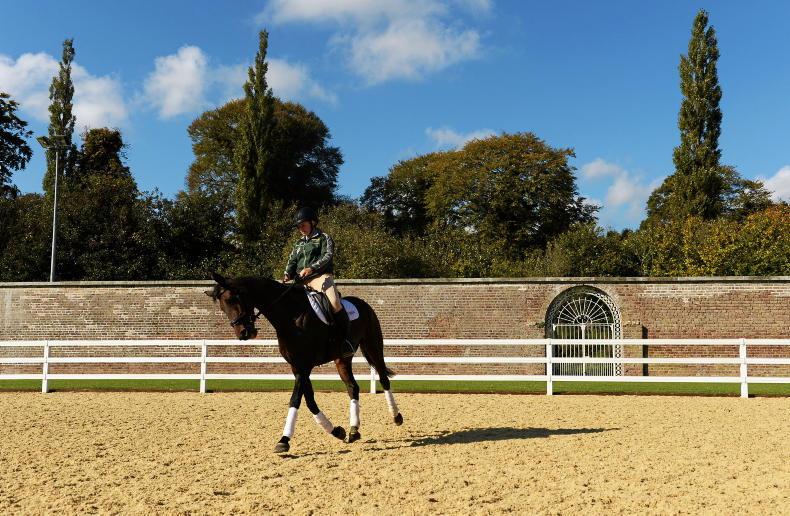THERE are no plans to relocate the National Horse Sport Arena on the Sport Ireland Campus, Sport Ireland told The Irish Field on Friday.
As revealed in last week’s paper, the National Horse Sport Arena at the Abbotstown campus, which is believed to have cost in the region of €300,000, is to be repurposed as a vegetable garden as part of the ‘Sport Ireland Campus Masterplan’.
The document outlines a vision and framework for the campus over the next 15 to 20 years. It is understood that a draft of the ‘Masterplan’ included plans to move the arena elsewhere on the 477-acre site, however the published framework does not include equestrian and Sport Ireland confirmed on Friday afternoon that it would not be relocated.
Responding to our query, a Sport Ireland spokesperson said: “There are no plans to relocate the National Horse Sport Arena on the Sport Ireland Campus at the moment. Sport Ireland will work with stakeholders to ensure a smooth transition away from the National Horse Sport Arena and that there is no impact on Equestrian High-Performance Programmes.’
The Irish Field questioned the matter with Minister Thomas Byrne, the Minister of State with responsibility for Sport and Physical Education at the Department of Sport, but were told the question should be answered by Sport Ireland.
Meanwhile, Horse Sport Ireland have said they are in constant consultation with Sport Ireland on the matter. HSI CEO Denis Duggan said: “When the plans were unveiled in November, we met with Sport Ireland and have continued to consult with them on the plans for the National Sport Horse Arena. We were obviously initially concerned at the proposed removal of the arena from the campus, but the fact is that this move won’t take place until 2025 at the earliest and it remains subject to significant funding.
“Sport Ireland have also confirmed to us that they will continue to work on projects to accommodate the needs of organisations like ourselves. HSI has no intention of leaving the equestrian community without an arena following the potential redevelopment of the one in Abbotstown and will continue to work on an alternative for the medium and longer term.”
Duggan added that HSI welcomes the fact that Sport Ireland has placed significant athlete wellbeing at the heart of the plans. “If these plans do go ahead, HSI is pleased that the walled garden will be put to use as an area of solace, relaxation and reflection for athletes as they prepare for competition on campus,” he said.
Publicly-owned
The National Horse Sport Arena, opened in October 2013, is the first publicly owned facility of its kind in Ireland. It is managed by the Operations Company of the National Sports Campus and has always been available on a ‘community commercial’ basis for training purposes.
The sand area is 100m x 55m and is a sand-fibre mix. The natural grass area beside the arena is 121m x 32m. There are also 10 stables on site with space for horse boxes/lorries available. The arena alone is believed to have cost approximately €300,000 10 years ago, and the surface has since been topped up.
Irish high-performance teams and athletes have used the arena for 10 years in preparation for championships. When the facility was opened, it was reported in The Irish Field that HSI entered into a licence agreement with the National Sport Campus Development Authority; the terms of which were not revealed.
Petition
A petition to stop the removal of the National Horse Sport Arena has been signed by close to 3,000 people in less than a week. “The very existence of the National Sport Horse Arena at the Sport Ireland Campus is in no small way symbolic of equestrian sports place at the heart of Irish sport. The removal of this facility would be detrimental to equestrian sport in Ireland and the sport horse industry at large. It would serve to diminish the position of all equestrian disciplines and is disrespectful of Ireland’s position as a world leader not just in sport but in the breeding and production of sport horses for the global market,” it read.
“Removing sport horse facilities from the heart of Ireland’s sporting infrastructure sends a negative signal to the world market as to the esteem in which we hold our horse sport industry and risks the livelihoods of the many thousands of Irish people who rely on breeding, production and trading of horses for their livelihoods.”


 This is a subscriber-only article
This is a subscriber-only article
 It looks like you're browsing in private mode
It looks like you're browsing in private mode










SHARING OPTIONS: